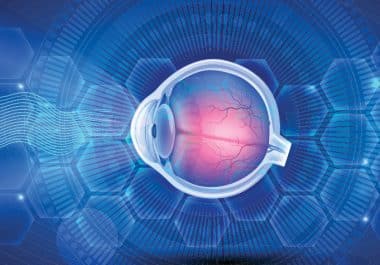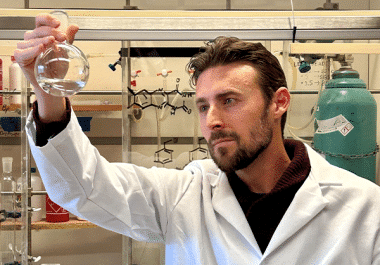
A Mechanosensitive Hormone Signaling Pathway Increases Breast Cancer Risk
Jason Northey, PhD, recipient of the 2015 AACR Basic Cancer Research Fellowship and 2017 AACR-Janssen Fellowship in Cancer Interception Research, and his colleagues uncovered how a stiff extracellular matrix, such as that observed in high mammographic density breast tissue, promotes ERK activity, progesterone receptor-dependent RANK signaling, and increased stemness, pointing to a potential benefit of RANK signaling inhibition as an anti-cancer treatment and prevention strategy.








